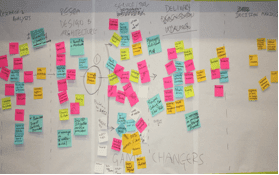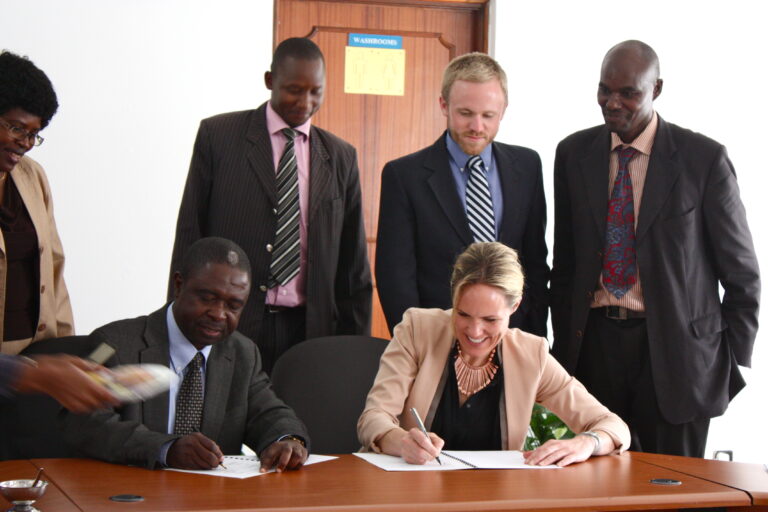Experts Envision Solutions to the African Food Crisis

The Green Revolution saved billions of people on the brink of starvation. Yet, nearly 50 years later, 1 in 8 individuals in the world are still hungry. We know the right tools and technologies for maximizing agricultural productivity, so where is the missing link?
In Sub-Saharan Africa, the most food insecure region in the world, crop yields are actually sufficient to feed most of the population. However, from the moment crops are harvested until they—in theory—reach market, up to 50% are lost or spoiled. This staggering waste carries high stakes for the food and nutritional security of millions of Africans. To mitigate post harvest loss in Africa, The Rockefeller Foundation created its Food Waste and Spoilage initiative. Through this initiative, the foundation seeks to ensure that two million African smallholder farmers have greater income and economic opportunities, improved resilience, and increased food and nutritional security through reduced post harvest loss in food crop value chains by 2020.
Named a Global Engagement Network Social Innovation Lab in November, 2013, the Global Knowledge Initiative (GKI) was chosen to facilitate this year-long, four-phase process that consists of: (1) framing the Food Waste and Spoilage Challenge as understood by a variety of agricultural value chain actors across the world, (2) assessing the resources available and needed globally to address the challenge, (3) envisioning possible solutions meriting further investigation, and (4) connecting key stakeholders and resources involved in bringing the highest potential solutions to scale.

GKI completed phases one and two with the input and expertise of a diverse set of agriculture value chain stakeholders. From November, 2013 until January, 2014, GKI undertook a six country wide problem framing exercise to map opportunities and barriers to reducing post harvest loss in Africa. Then, from among the opportunities prioritized by participating experts, GKI identified ten opportunities warranting further investigation. In phase three of this process, GKI held a “Solutions Visioning” high-level workshop that brought together a diverse group of participants hailing from a variety of sectors including Africa-based exporters, global standards companies, local-level non-profit organizations, foundations, consulting firms, financial institutions, and more. Set against the backdrop of the International Food and Agribusiness Management Association and Corporate Council on Africa World Form 2014, in Cape Town, South Africa, these international experts put their heads together to come up with a number of truly innovative and integrated strategies to reducing post harvest food loss along the value chain. Focused on accessible financing mechanisms, improved distribution channels, better access to market information, and more, the workshop was a powerful incubator for solution design.

For example, one group developed an innovative new twist to the Farmer-Based Organization: FBO 2.0. Specifically focused on boosting the selling power and market access of FBOs, this group proposed a new professionalized model that would include a Production Manager, Steering Committee, and Sales Manager. Moreover, the FBO 2.0 would hire traders / middlemen, capitalizing on resources that are usually exogenous to the system. Serving as a dynamic agro-industry, the FBO 2.0 would fill a critical gap by connecting smallholder farmers to market.
To learn more about these exciting strategies, please read the Solutions Visioning After Action Report. Additionally, stay tuned to learn more about how these tools and approaches will influence the fourth and final phase of the innovation lab: the Collaboration Colloquium.







